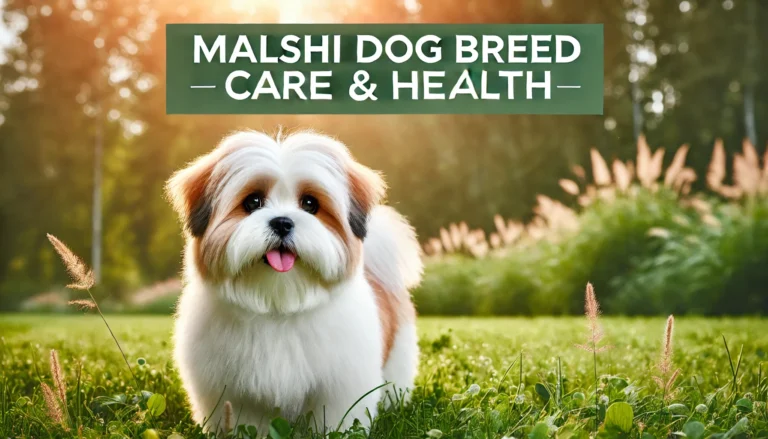Comprehensive Guide to German Shepherd Health and Care

The German Shepherd, a breed renowned for its loyalty, intelligence, and versatility, is one of the most popular and recognizable dog breeds worldwide. Often employed in police work, search and rescue, and as service dogs, German Shepherds (also known as GSDs) are known for their courage and dedication. However, prospective and current owners must be well-informed about the specific health care and maintenance needs of this robust breed to ensure they lead a full and active life.

Genetic Health Considerations
German Shepherds are prone to several genetic health issues that every owner should be aware of:
- Hip and Elbow Dysplasia: This breed is particularly susceptible to hip and elbow dysplasia, conditions in which the joint does not fit together perfectly, leading to arthritis or lameness. This is a significant concern given the German Shepherd’s active nature.
- Degenerative Myelopathy (DM): Often affecting older German Shepherds, DM leads to progressive spinal cord wear, culminating in weakness and paralysis. Genetic testing is available to identify dogs that may be at risk.
- Gastric Dilatation-Volvulus (GDV): Also known as bloat, this life-threatening condition can affect deep-chested breeds like the German Shepherd. Preventative measures include feeding smaller, frequent meals and avoiding vigorous exercise around feeding times.
Routine Health Care
Proactive and consistent care can drastically enhance the quality of life for a German Shepherd:
- Vaccinations and Preventive Measures: Keeping up with vaccinations and regular preventive measures is crucial to protect them from diseases.
- Dental Health: Dental care, including regular brushing and professional cleanings, can prevent gum disease and other health issues.
- Diet and Exercise: A balanced diet tailored to their age, activity level, and health, combined with regular exercise, helps prevent obesity and maintain overall health.

Exercise Needs
German Shepherds thrive on physical activity and require regular exercise to maintain their health and happiness:
- Physical Exercise: They require at least one to two hours of physical activity daily. Suitable activities include running, agility training, and playing fetch.
- Mental Stimulation: Highly intelligent, German Shepherds also require mental engagement through training exercises, puzzle toys, and regular interaction to prevent boredom and destructive behavior.
Grooming and Care
The breed’s double coat needs regular grooming:
- Brushing: Weekly brushing helps reduce shedding and keeps their coat healthy. During shedding seasons, more frequent grooming is necessary.
- Bathing: Bathing should be done only as needed to avoid stripping the coat of its natural oils, which can lead to skin irritation.
Socialization and Environmental Adaptation
Early socialization is crucial for German Shepherds to ensure they grow into well-adjusted adults. Exposure to various environments, situations, and people can help mitigate aggressive or fearful behaviors.
Longevity and Aging
The average lifespan of a German Shepherd is between 9 and 13 years, though this can vary based on genetics, care, and overall health. As they age, they may develop specific health needs related to mobility and chronic conditions, which can be managed with regular veterinary care and lifestyle adjustments.
dO YOU KNOW?
A dying dog may have a disheveled appearance as they lose the ability to groom themselves. This change might necessitate the use of dog period pads, especially if they begin to experience incontinence, which is common in the final stages of life.
Special Considerations
- German Shepherd as Family Pets: Known for their protective nature, German Shepherds make excellent family pets when properly trained. They are particularly good with children when raised together.
- Common Health Problems: Besides joint issues and bloat, German Shepherds are prone to skin allergies and conditions like EPI (Exocrine Pancreatic Insufficiency), which affects digestion.
Conclusion
Owning a German Shepherd comes with the responsibility of ensuring they receive proper care and maintenance. Understanding the unique health concerns and daily care needs of German Shepherds can help ensure that these noble dogs lead healthy, active, and fulfilling lives. Whether serving as a working dog or a family companion, a well-cared-for German Shepherd is a testament to the capabilities and enduring spirit of this extraordinary breed.
What Does German Shepherd Love to Eat?
German Shepherds, like most dogs, will enjoy a variety of foods, but they particularly love meat-based treats, such as chicken, beef, and lamb. They also enjoy crunchy vegetables like carrots.
Can We Give Dal to German Shepherd?
Dal can be given to German Shepherds in small amounts as part of a balanced diet. However, it should not replace a portion of their protein intake necessary from meat-based sources.
Most Common Health Issue in German Shepherds
The most prevalent health issue facing German Shepherds is hip and elbow dysplasia, a genetic condition where the joints develop improperly. This can lead to pain, lameness, and arthritis. Regular veterinary check-ups, maintaining a healthy weight, and proper nutrition can help manage this condition.
What Do German Shepherds Need to Be Healthy?
To maintain their health, German Shepherds require:
Regular exercise: They need physical activity to keep them fit and prevent obesity, which can exacerbate joint problems.
Balanced diet: A high-quality diet suited to their age, size, and activity level.
Mental stimulation: German Shepherds are very intelligent and need mental challenges to keep them engaged and prevent behavioral issues.
Regular veterinary care: Routine check-ups can catch health issues before they become serious.
Socialization: Early and ongoing socialization helps prevent aggressive or fearful behaviors.
How to Properly Take Care of a German Shepherd
Proper care for a German Shepherd involves:
Daily exercise: They should have at least one to two hours of exercise daily.
Nutrition: Feed them high-quality dog food that meets their nutritional needs.
Health monitoring: Keep up with vaccinations and regular vet visits.
Training: Consistent, positive reinforcement training is essential.
Grooming: Regular brushing and occasional baths to maintain their coat
Which Food is Best for a German Shepherd?
The best food for a German Shepherd should be high in protein and have a balance of essential fats, carbohydrates, vitamins, and minerals. Look for foods specifically formulated for large breeds or active dogs to ensure they get the nutrients they need for energy and health.
Can German Shepherd Drink Milk?
Most dogs, including German Shepherds, are lactose intolerant, meaning milk can cause digestive upset. It’s best to avoid giving them milk.
Can a German Shepherd Eat Rice?
Yes, rice is safe for German Shepherds in moderation. It’s often used in dog foods as a carbohydrate source and can be good for dogs with sensitive stomachs.
Is Egg Good for German Shepherd?
Yes, eggs are a great source of protein, fatty acids, and vitamins that are beneficial for German Shepherds. They can be fed cooked eggs in moderation.
At What Age is a German Shepherd Dog Full Grown?
German Shepherds typically reach their full size by about 18 to 24 months old, though they may continue to fill out in muscle and coat until they are about 2-3 years old.
Can a German Shepherd Eat Chapati?
Chapati is safe for German Shepherds but should only be given occasionally and in moderation as it is high in carbohydrates.
Is Ghee Good for Dogs?
In small amounts, ghee can be harmless and can even help improve coat quality due to its fat content. However, it should be given sparingly to avoid excessive weight gain.






